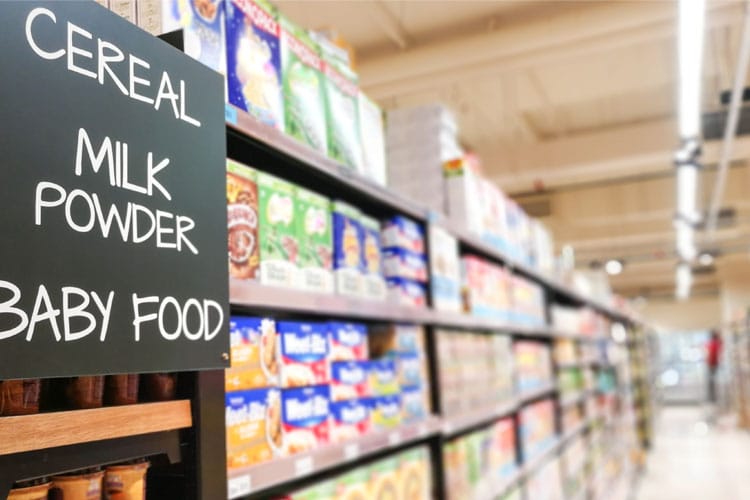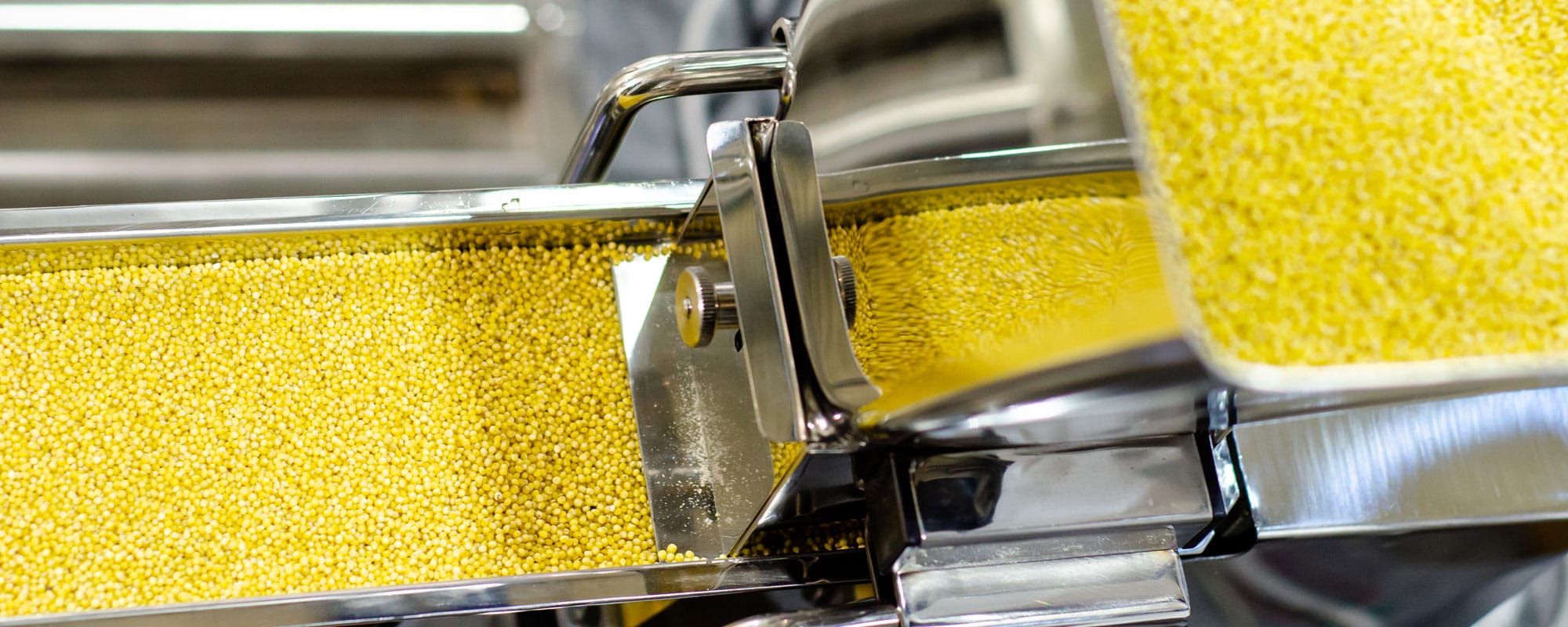Impact
Food Production 4.0
Groeneveld-BEKA helps major food companies nourish a growing world
The global food and beverage equipment market is expected to reach $76 billion in 2026, up from $58.3 billion last year. Three trends are driving this growth: there are more people to feed, they prefer healthy yet conveniently packaged foods and new technology is emerging to meet those demands.
Feeding the world is a crucial task, currently made possible with the help of increasingly automated systems at the world’s leading food factories. Groeneveld-BEKA automatic lubrication systems support safe and efficient production of essentials like cereal, vegetables and canned goods.
Grease experts Groeneveld and BEKA joined Timken in 2017 and 2019, respectively, combining 146 years of expertise to become the world’s second largest producer of automatic lubrication systems, fluid management and safety support systems.
“Our solutions focus on automatically increasing machine productivity,” says Robert Kroupa, vice president of Groeneveld-BEKA industrial division in North America. “What we do means more food can be produced in less time, using fewer resources.”

Plugging in to food’s “Internet of Things”
Like many industries, food processing has adopted Industry 4.0 concepts like digitalization and automation. In this setup, automatic lubrication systems act as the brains and brawn behind proper greasing of equipment. These systems know when it’s time to grease, then actually do it — with little intervention from maintenance professionals.
Automatic lubrication devices often communicate directly with a food facility’s main control systems to collect data and refine lubrication procedures.
That’s what Groeneveld-BEKA engineers recently proposed to a North American cereal producer that wanted to reduce oil consumption in conveyors carrying cereal through massive baking ovens.
The BEKA® EP-1 progressive lubrication system automatically sends food-grade grease to each conveyor chain, independently, when requested by the oven’s controller. If one chain in the system doesn’t require greasing, a three-way valve sends it back into a reservoir to be distributed at a later time.

The Groeneveld-BEKA® EP-1 progressive lubrication system uses a highly engineered pump, main line and distributors to deliver precise quantities of food-safe grease to each specific friction point in a food processing operation.
Electronic controls monitor pressure, grease levels, the completion of lubrication cycles and more. These controls send alerts to the maintenance team when intervention is needed.
Kroupa says the customer reported a 65% reduction in oil consumption since installing the EP-1 systems. “It’s improved their sustainability and significantly lowered their spend for expensive, food-grade lubrication,” he adds.
In Europe, Groeneveld-BEKA customized a different solution to extend chain life and uptime in cutting equipment used by a vegetable processor. The system uses an oil pump, lubrication pinions and small computer, called a programmable logic controller (PLC), to deliver oil to chain axle friction points automatically. This reduces oil consumption and improves maintenance efficiency.
Precise automation protects workers and consumers
In packaging and bottling operations, conveyors need lubrication to reduce friction between the belt and food and beverage containers. Soapy water is often used as a lubricant, but its challenges are three-fold: high water bills for producers, potential damage to paper-based packaging and a slipping hazard for workers.
Kroupa notes that Groeneveld-BEKA can eliminate water used in conveyors using “dry lube” products. “It’s like a silicone-based cooking spray we brush on that gives the conveyor low friction for greater efficiency,” he says. “It reduces water consumption, doesn’t damage the packing and eliminates slip-and-fall risks for people working in the facility.”
Groeneveld-BEKA’s expertise and product offering protect consumers, too. While only food-grade lubricants are used in food processing applications, precision is crucial to avoiding potential “overspray” which can get into food and beverage products, impacting taste.
“While it’s still edible, we have to be very careful about how lubricants are applied,” Kroupa says. In one instance, his team customized a system to eliminate overspray in a pizza crust baking process for a major chain of take-out restaurants. “People come to expect what their favorite foods taste like. It’s our job to help ensure they taste the same every time.”
“Our solutions focus on automatically increasing machine productivity. What we do means more food can be produced in less time, using fewer resources.”
Robert Kroupa
Vice President, Industrial Division North America, Groeneveld-BEKA by Timken
Wireless solutions redefine “manual maintenance”
Even less complex, non-networked food processing operations find value in smaller-scope automatic lubrication solutions. Groeneveld-BEKA is in the final stages of perfecting new single point lubricators — where the only “manual maintenance” required is a few screen taps.
“It’s perfect for lubricating a bearing 20 feet in the air, where no one wants to climb up to service,” Kroupa says. “It’s a great, safe alternative to manual maintenance.”
As the world’s food processing operations grow larger and more sophisticated, Groeneveld-BEKA solutions continually evolve to enhance worker and consumer safety, efficient operations and reliable supply of essential kitchen staples.
Food and beverage producers and equipment builders also connect with Timken for bearings and other power transmission solutions. Learn more about Timken products in large-scale food production.
Published: 2022/04/10
